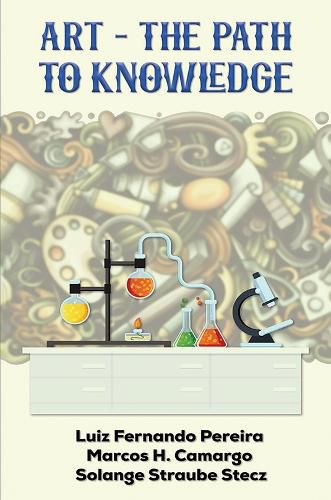Readings Newsletter
Become a Readings Member to make your shopping experience even easier.
Sign in or sign up for free!
You’re not far away from qualifying for FREE standard shipping within Australia
You’ve qualified for FREE standard shipping within Australia
The cart is loading…






This title is printed to order. This book may have been self-published. If so, we cannot guarantee the quality of the content. In the main most books will have gone through the editing process however some may not. We therefore suggest that you be aware of this before ordering this book. If in doubt check either the author or publisher’s details as we are unable to accept any returns unless they are faulty. Please contact us if you have any questions.
A university must produce and organize knowledge. Indeed, this fact does not seem to suffer disputes. However, what is the knowledge that a university produces and disseminates? In this short essay, which serves as a conceptual basis for a wide-ranging epistemological discussion, the authors propose questions about knowledge, whose answers have been sought by the contemporary academy. However, the research is more focused on questions than on answers. The important thing is to ask the right questions. We invite the members of the academic community to participate in this theoretical reflection on knowledge, in order to support our research activities, extension, teaching and graduate studies. The growing and unstable transformations the world has been going through are reflected directly in production, recording and distribution of knowledge, not to mention the value changes that the traditional knowledge has suffered, as it is hastily abandoned by unfounded news. Revisiting the concepts that form the bases of our science serves to verify their validity, effectiveness and socioeconomic, political and cultural importance. Courage to re-examine openly the beliefs that we embrace in the practice of our sciences is the virtue that defines, par excellence, the academic researcher. "If Biology can save the humans and the Earth, the arts can save the soul..." (Luiz Fernando Pereira) "When I examine myself and my methods of thought, I come to the conclusion that the gift of fantasy has meant more to me than any talent for abstract, positive thinking." A. Einstein.
$9.00 standard shipping within Australia
FREE standard shipping within Australia for orders over $100.00
Express & International shipping calculated at checkout
This title is printed to order. This book may have been self-published. If so, we cannot guarantee the quality of the content. In the main most books will have gone through the editing process however some may not. We therefore suggest that you be aware of this before ordering this book. If in doubt check either the author or publisher’s details as we are unable to accept any returns unless they are faulty. Please contact us if you have any questions.
A university must produce and organize knowledge. Indeed, this fact does not seem to suffer disputes. However, what is the knowledge that a university produces and disseminates? In this short essay, which serves as a conceptual basis for a wide-ranging epistemological discussion, the authors propose questions about knowledge, whose answers have been sought by the contemporary academy. However, the research is more focused on questions than on answers. The important thing is to ask the right questions. We invite the members of the academic community to participate in this theoretical reflection on knowledge, in order to support our research activities, extension, teaching and graduate studies. The growing and unstable transformations the world has been going through are reflected directly in production, recording and distribution of knowledge, not to mention the value changes that the traditional knowledge has suffered, as it is hastily abandoned by unfounded news. Revisiting the concepts that form the bases of our science serves to verify their validity, effectiveness and socioeconomic, political and cultural importance. Courage to re-examine openly the beliefs that we embrace in the practice of our sciences is the virtue that defines, par excellence, the academic researcher. "If Biology can save the humans and the Earth, the arts can save the soul..." (Luiz Fernando Pereira) "When I examine myself and my methods of thought, I come to the conclusion that the gift of fantasy has meant more to me than any talent for abstract, positive thinking." A. Einstein.